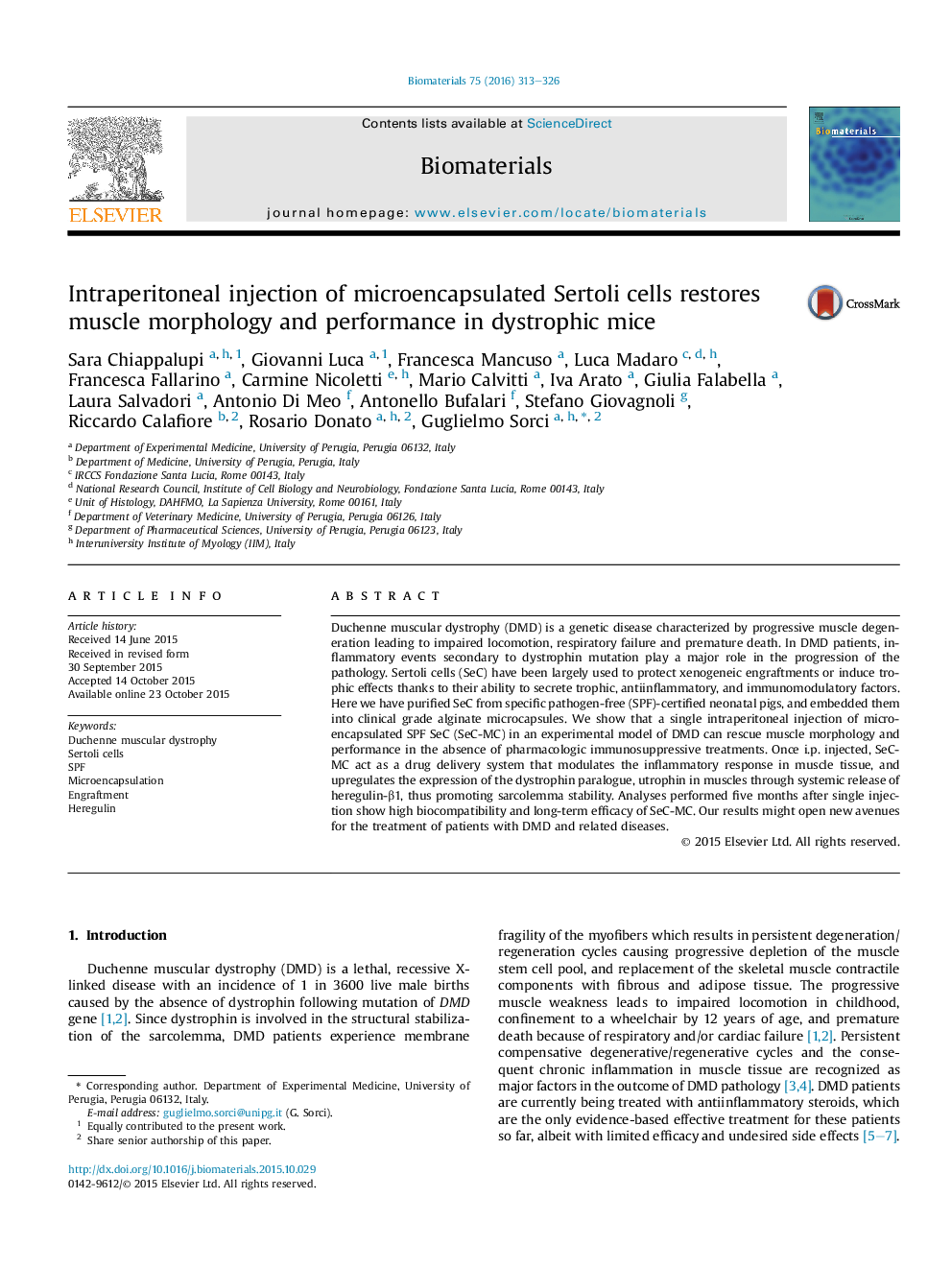| Article ID | Journal | Published Year | Pages | File Type |
|---|---|---|---|---|
| 5508 | Biomaterials | 2016 | 14 Pages |
Duchenne muscular dystrophy (DMD) is a genetic disease characterized by progressive muscle degeneration leading to impaired locomotion, respiratory failure and premature death. In DMD patients, inflammatory events secondary to dystrophin mutation play a major role in the progression of the pathology. Sertoli cells (SeC) have been largely used to protect xenogeneic engraftments or induce trophic effects thanks to their ability to secrete trophic, antiinflammatory, and immunomodulatory factors. Here we have purified SeC from specific pathogen-free (SPF)-certified neonatal pigs, and embedded them into clinical grade alginate microcapsules. We show that a single intraperitoneal injection of microencapsulated SPF SeC (SeC-MC) in an experimental model of DMD can rescue muscle morphology and performance in the absence of pharmacologic immunosuppressive treatments. Once i.p. injected, SeC-MC act as a drug delivery system that modulates the inflammatory response in muscle tissue, and upregulates the expression of the dystrophin paralogue, utrophin in muscles through systemic release of heregulin-β1, thus promoting sarcolemma stability. Analyses performed five months after single injection show high biocompatibility and long-term efficacy of SeC-MC. Our results might open new avenues for the treatment of patients with DMD and related diseases.
